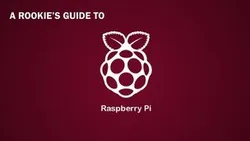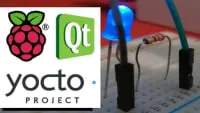
A Rookies Guide to Raspberry Pi 
This guide provides a comprehensive introduction to the Raspberry Pi, including how to set up and use the device. It is an ideal resource for those new to the Raspberry Pi, offering step-by-step instructions to get started. ▼
ADVERTISEMENT
Course Feature
![]() Cost:
Cost:
Free
![]() Provider:
Provider:
Udemy
![]() Certificate:
Certificate:
Paid Certification
![]() Language:
Language:
English
![]() Start Date:
Start Date:
On-Demand
Course Overview
❗The content presented here is sourced directly from Udemy platform. For comprehensive course details, including enrollment information, simply click on the 'Go to class' link on our website.
Updated in [February 21st, 2023]
Learners can learn a variety of topics from this course, such as how to format an SD card, set up the Raspbian OS, create new Linux user accounts, overclock their Raspberry Pi, install new software, program in basic Scratch and Python, and set up their own web server. The course is designed to be short and concise, with lectures delivered in crisp 1080p and written material to recap what has been learned. Additionally, the instructor is available to answer any questions and provide support. This course is a great way to get started with the Raspberry Pi and gain a better understanding of the device.
[Applications]
Once the course is completed, users can apply their knowledge of Raspberry Pi to create projects such as a web server, a media center, a home automation system, or a gaming console. They can also use their Raspberry Pi to learn more about programming languages such as Scratch and Python. Additionally, users can explore the many other applications of Raspberry Pi, such as robotics, machine learning, and artificial intelligence.
[Career Paths]
Recommended career paths for learners of this course include:
1. Raspberry Pi Developer: Raspberry Pi developers are responsible for creating and maintaining applications and systems that run on the Raspberry Pi platform. They must have a strong understanding of the Raspberry Pi hardware and software, as well as the ability to write code in languages such as Python and Scratch. The demand for Raspberry Pi developers is growing as more businesses and organizations are utilizing the platform for their projects.
2. Raspberry Pi System Administrator: Raspberry Pi system administrators are responsible for managing and maintaining the Raspberry Pi systems. They must have a strong understanding of the Raspberry Pi hardware and software, as well as the ability to troubleshoot and resolve any issues that may arise. The demand for Raspberry Pi system administrators is increasing as more businesses and organizations are utilizing the platform for their projects.
3. Raspberry Pi Network Engineer: Raspberry Pi network engineers are responsible for designing, implementing, and maintaining networks that run on the Raspberry Pi platform. They must have a strong understanding of the Raspberry Pi hardware and software, as well as the ability to configure and troubleshoot networks. The demand for Raspberry Pi network engineers is growing as more businesses and organizations are utilizing the platform for their projects.
4. Raspberry Pi Security Engineer: Raspberry Pi security engineers are responsible for designing, implementing, and maintaining security systems that run on the Raspberry Pi platform. They must have a strong understanding of the Raspberry Pi hardware and software, as well as the ability to configure and troubleshoot security systems. The demand for Raspberry Pi security engineers is increasing as more businesses and organizations are utilizing the platform for their projects.
[Education Paths]
Recommended Degree Paths:
1. Computer Science: Computer Science is a field of study that focuses on the design, development, and implementation of computer systems and software. It is a rapidly growing field, with new technologies and applications being developed every day. With a degree in Computer Science, you will be able to work in a variety of industries, from software engineering to artificial intelligence.
2. Electrical Engineering: Electrical Engineering is a field of study that focuses on the design, development, and implementation of electrical systems and components. It is a rapidly growing field, with new technologies and applications being developed every day. With a degree in Electrical Engineering, you will be able to work in a variety of industries, from robotics to renewable energy.
3. Robotics: Robotics is a field of study that focuses on the design, development, and implementation of robotic systems and components. It is a rapidly growing field, with new technologies and applications being developed every day. With a degree in Robotics, you will be able to work in a variety of industries, from manufacturing to healthcare.
4. Artificial Intelligence: Artificial Intelligence is a field of study that focuses on the design, development, and implementation of intelligent systems and components. It is a rapidly growing field, with new technologies and applications being developed every day. With a degree in Artificial Intelligence, you will be able to work in a variety of industries, from finance to healthcare.
Pros & Cons

Clear idea to get Pi ready

Easy to follow advice

Good for beginners

Bitesize pieces for userfriendly learning

Stepbystep setup and configuration

Python 101 basics

Quick intro may be hard to keep up with

Loss of professionalism

Flaws in web server section

Inefficient coding section

Not enough detail for next steps
Course Provider

Provider Udemy's Stats at AZClass
Discussion and Reviews
0.0 (Based on 0 reviews)
Explore Similar Online Courses

How to Edit Video on iPhone & iPad: LumaFusion Tutorial (2020!)

Brand identity in 20 minutes with Matt

Python for Informatics: Exploring Information

Social Network Analysis

Introduction to Systematic Review and Meta-Analysis

The Analytics Edge

DCO042 - Python For Informatics

Causal Diagrams: Draw Your Assumptions Before Your Conclusions

Whole genome sequencing of bacterial genomes - tools and applications

Powering your Home Projects with Raspberry Pi

Creative Audio Programming on the Raspberry Pi


Start your review of A Rookies Guide to Raspberry Pi